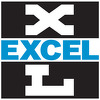
 Power and charging requirements for hospitality facilities are changing radically and rapidly. This course examines the options for and benefits of supplying power and charging outlets in walls, furniture, headboards, nightstands, public seating, and public gathering spaces, including outdoor areas, as well as the applicable codes for furniture-based power outlets. The course concludes with an overview of the benefits of occupancy sensors and auto-off switches in guest rooms and the installation requirements to comply with energy and electrical codes.
Power and charging requirements for hospitality facilities are changing radically and rapidly. This course examines the options for and benefits of supplying power and charging outlets in walls, furniture, headboards, nightstands, public seating, and public gathering spaces, including outdoor areas, as well as the applicable codes for furniture-based power outlets. The course concludes with an overview of the benefits of occupancy sensors and auto-off switches in guest rooms and the installation requirements to comply with energy and electrical codes.

https://redirect.aecdaily.com/s525798/www.aecdaily.com/course/1017988
This course is ONLINE: SELF-PACED. Experience it on your own schedule, at your convenience.

 By design, automatic pedestrian doors provide easier, more convenient access than manual doors for a wide variety of building types, and their popularity in commercial design continues to grow. Reviewed in this course are the available options of automatic door solutions, including sliding, swinging, ICC/CCU, and revolving door systems. Also discussed are the code requirements and considerations relating to automatic doors for proper specification.
By design, automatic pedestrian doors provide easier, more convenient access than manual doors for a wide variety of building types, and their popularity in commercial design continues to grow. Reviewed in this course are the available options of automatic door solutions, including sliding, swinging, ICC/CCU, and revolving door systems. Also discussed are the code requirements and considerations relating to automatic doors for proper specification.

https://redirect.aecdaily.com/s840811/www.aecdaily.com/course/862566
This course contains sustainable design information. See the course details page for more information.
This course is ONLINE: SELF-PACED. Experience it on your own schedule, at your convenience.

 Designing restrooms to allow for and maximize proper hygiene is important in reducing the spread of germs. This course discusses the elements of hygienic restroom design and how reducing required touchpoints helps to increase safety and cleanliness. The key steps in proper hand hygiene are also discussed. The course then focuses on hand dryers and considers their impact on hand hygiene and sustainability. The future of commercial restroom design is then explored.
Designing restrooms to allow for and maximize proper hygiene is important in reducing the spread of germs. This course discusses the elements of hygienic restroom design and how reducing required touchpoints helps to increase safety and cleanliness. The key steps in proper hand hygiene are also discussed. The course then focuses on hand dryers and considers their impact on hand hygiene and sustainability. The future of commercial restroom design is then explored.

https://redirect.aecdaily.com/s5712/www.aecdaily.com/course/946869
This course contains sustainable design information. See the course details page for more information.
This course is ONLINE: SELF-PACED. Experience it on your own schedule, at your convenience.

 With the demand for sustainable power on the rise, building owners and homeowners alike are turning to solar power as a supplemental power generator. Choosing the right platform for the solar panels is a critical step in the design process and can have a significant impact on both initial and long-term costs. This course discusses the basics of photovoltaic systems, including the components and rooftop applications. Comparisons between traditional roofing and standing seam metal roofing platforms are examined, and the benefits of a nonpenetrating clamping system are discussed.
With the demand for sustainable power on the rise, building owners and homeowners alike are turning to solar power as a supplemental power generator. Choosing the right platform for the solar panels is a critical step in the design process and can have a significant impact on both initial and long-term costs. This course discusses the basics of photovoltaic systems, including the components and rooftop applications. Comparisons between traditional roofing and standing seam metal roofing platforms are examined, and the benefits of a nonpenetrating clamping system are discussed.

https://redirect.aecdaily.com/s427660/www.aecdaily.com/course/749008
This course contains sustainable design information. See the course details page for more information.
This course is ONLINE: SELF-PACED. Experience it on your own schedule, at your convenience.

 Power and charging needs in hotels, offices, and lobbies have changed due to emerging trends in how people use their electronic devices. Modern users require more and better access to charging. This need combined with the rise of the USB-Type C Standard, new furniture-based power technology, and the challenges of open space design requires designers to apply a new strategy for power/charging outlets. This course discusses how to employ furniture power distribution units (FPDUs) to meet the needs of users, hotel operators, and facility managers.
Power and charging needs in hotels, offices, and lobbies have changed due to emerging trends in how people use their electronic devices. Modern users require more and better access to charging. This need combined with the rise of the USB-Type C Standard, new furniture-based power technology, and the challenges of open space design requires designers to apply a new strategy for power/charging outlets. This course discusses how to employ furniture power distribution units (FPDUs) to meet the needs of users, hotel operators, and facility managers.

https://redirect.aecdaily.com/s525798/www.aecdaily.com/course/836152
This course is ONLINE: SELF-PACED. Experience it on your own schedule, at your convenience.

 Lighting controls allow homeowners to adjust lamps and light fixtures from anywhere in the home without special wiring or expensive master controllers. Lighting controls can be integrated into a home for single-room, multiroom, whole-house, or automated systems. This course discusses the role of lighting in design and occupant comfort and then outlines how lighting controls can benefit occupant behavior, health, and productivity and the appeal and performance of the home, especially regarding energy efficiency.
Lighting controls allow homeowners to adjust lamps and light fixtures from anywhere in the home without special wiring or expensive master controllers. Lighting controls can be integrated into a home for single-room, multiroom, whole-house, or automated systems. This course discusses the role of lighting in design and occupant comfort and then outlines how lighting controls can benefit occupant behavior, health, and productivity and the appeal and performance of the home, especially regarding energy efficiency.

https://redirect.aecdaily.com/s525798/www.aecdaily.com/course/1030924
This course contains sustainable design information. See the course details page for more information.
This course is part of one or more "Course Collections". Click here to view the details.
This course is ONLINE: SELF-PACED. Experience it on your own schedule, at your convenience.

 Electric heating systems have been in use for over a century, and in that period, they have significantly advanced in terms of their efficiency, cost effectiveness, safety, versatility, and appearance. Recently, electricity production itself has become more and more environmentally friendly and economically viable. This course explores how the wide range of contemporary electric heating options can efficiently and economically address virtually every heating need in every building type and thus capitalize on the steadily increasing benefits of electricity to create the most environmentally responsible and economically viable heating solutions.
Electric heating systems have been in use for over a century, and in that period, they have significantly advanced in terms of their efficiency, cost effectiveness, safety, versatility, and appearance. Recently, electricity production itself has become more and more environmentally friendly and economically viable. This course explores how the wide range of contemporary electric heating options can efficiently and economically address virtually every heating need in every building type and thus capitalize on the steadily increasing benefits of electricity to create the most environmentally responsible and economically viable heating solutions.

https://redirect.aecdaily.com/s9351/www.aecdaily.com/course/1036949
This course contains sustainable design information. See the course details page for more information.
This course is ONLINE: SELF-PACED. Experience it on your own schedule, at your convenience.

 Light-manipulating materials use internal channels to capture, bend, scatter, and redirect light and create visually stunning spaces. Panels and slabs in resin, glass, and terrazzo make an experiential surface for privacy screens or signage, primary or accent lighting, and countertops or flooring—anywhere the interplay of light and shadow is desired for beauty and inspiration. This course describes the different types of light-manipulating materials and substrates, design and installation options, and the contributions of these products to sustainability goals as well as occupant health, well-being, and engagement in a wide range of dynamic, unique applications.
Light-manipulating materials use internal channels to capture, bend, scatter, and redirect light and create visually stunning spaces. Panels and slabs in resin, glass, and terrazzo make an experiential surface for privacy screens or signage, primary or accent lighting, and countertops or flooring—anywhere the interplay of light and shadow is desired for beauty and inspiration. This course describes the different types of light-manipulating materials and substrates, design and installation options, and the contributions of these products to sustainability goals as well as occupant health, well-being, and engagement in a wide range of dynamic, unique applications.

https://redirect.aecdaily.com/s707030/www.aecdaily.com/course/940933
This course contains sustainable design information. See the course details page for more information.
This course is part of one or more "Course Collections". Click here to view the details.
This course is ONLINE: SELF-PACED. Experience it on your own schedule, at your convenience.

 Energy creation, distribution, and consumption are all in a period of transition. Understanding this transition and its benefits is critical to sustainable transitional energy planning (STEP). This course reviews the nature of the transition, the forces driving it, emerging energy systems and sources, and international and national examples. It details the process required for STEP and provides a comprehensive overview of the many renewable energy options now viable for community energy systems. It concludes with a series of illustrated sample plans and projects.
Energy creation, distribution, and consumption are all in a period of transition. Understanding this transition and its benefits is critical to sustainable transitional energy planning (STEP). This course reviews the nature of the transition, the forces driving it, emerging energy systems and sources, and international and national examples. It details the process required for STEP and provides a comprehensive overview of the many renewable energy options now viable for community energy systems. It concludes with a series of illustrated sample plans and projects.

https://redirect.aecdaily.com/s18122/www.aecdaily.com/course/1037314
This course contains sustainable design information. See the course details page for more information.
This course is ONLINE: SELF-PACED. Experience it on your own schedule, at your convenience.

 Architectural resin panels are engineered to suit the demands of a wide array of interior and exterior applications and offer almost unlimited combinations of color, pattern, and design. This course presents the features and options that allow resin panels to meet design requirements for both function and beauty and discusses how resin panels may play a role in projects seeking LEED® v4 BD+C, ID+C, and O+M; Living Building ChallengeSM v3.1; or WELL Building Standard® v1 certification.
Architectural resin panels are engineered to suit the demands of a wide array of interior and exterior applications and offer almost unlimited combinations of color, pattern, and design. This course presents the features and options that allow resin panels to meet design requirements for both function and beauty and discusses how resin panels may play a role in projects seeking LEED® v4 BD+C, ID+C, and O+M; Living Building ChallengeSM v3.1; or WELL Building Standard® v1 certification.

https://redirect.aecdaily.com/s777575/www.aecdaily.com/course/788434
This course contains sustainable design information. See the course details page for more information.
This course is ONLINE: SELF-PACED. Experience it on your own schedule, at your convenience.

 The growth of EV (electric vehicle) adoption is accelerating and the behavior of EV drivers is increasing the demand for electric vehicle charging stations. This education course explains the different types of charging available and their suitable applications, and discusses the planning and installation considerations for electric vehicle supply equipment (EVSE).
The growth of EV (electric vehicle) adoption is accelerating and the behavior of EV drivers is increasing the demand for electric vehicle charging stations. This education course explains the different types of charging available and their suitable applications, and discusses the planning and installation considerations for electric vehicle supply equipment (EVSE).

https://redirect.aecdaily.com/s701406/www.aecdaily.com/course/858594
This course contains sustainable design information. See the course details page for more information.
This course is ONLINE: SELF-PACED. Experience it on your own schedule, at your convenience.

 Multifamily Group R construction has traditionally been access controlled by means of pin and tumbler mechanical locks. With the migration to electronic access control locks, it can be complicated to understand how to comply with building and fire codes. This course attempts to demystify electronic access control by addressing the basic components, important terms, and design and code considerations, and concludes with a look at a case study.
Multifamily Group R construction has traditionally been access controlled by means of pin and tumbler mechanical locks. With the migration to electronic access control locks, it can be complicated to understand how to comply with building and fire codes. This course attempts to demystify electronic access control by addressing the basic components, important terms, and design and code considerations, and concludes with a look at a case study.

https://redirect.aecdaily.com/s710971/www.aecdaily.com/course/746353
This course is part of one or more "Course Collections". Click here to view the details.
This course is ONLINE: SELF-PACED. Experience it on your own schedule, at your convenience.

 Light is fundamental to life, and Earth’s 24-hour light–dark cycle directly impacts our physiology and behavior. Indoors, reduced exposure to daylight and increased exposure to electric light after dark interfere with circadian rhythms. This course examines how circadian rhythms affect human performance, health, and well-being, the receptors in the eye that send visual and nonvisual responses to the brain, the action spectrum for circadian stimulus, and the metrics used to quantify circadian-stimulus light. Also presented are methods for applying circadian-effective lighting systems to satisfy the requirements of WELL Building Standard™ v2, Light, Feature L03, Circadian Lighting Design.
Light is fundamental to life, and Earth’s 24-hour light–dark cycle directly impacts our physiology and behavior. Indoors, reduced exposure to daylight and increased exposure to electric light after dark interfere with circadian rhythms. This course examines how circadian rhythms affect human performance, health, and well-being, the receptors in the eye that send visual and nonvisual responses to the brain, the action spectrum for circadian stimulus, and the metrics used to quantify circadian-stimulus light. Also presented are methods for applying circadian-effective lighting systems to satisfy the requirements of WELL Building Standard™ v2, Light, Feature L03, Circadian Lighting Design.

https://redirect.aecdaily.com/s18525/www.aecdaily.com/course/1039961
This course contains sustainable design information. See the course details page for more information.
This course is ONLINE: SELF-PACED. Experience it on your own schedule, at your convenience.

 Drying hands thoroughly is crucial for maintaining hygiene levels, and when a hand dryer is too slow, the result is many people give up trying to dry their hands and leave the bathroom with wet or damp hands. Research has shown that damp hands can transmit up to 1,000x more bacteria than dry hands. This course discusses hand-drying concepts and the advantages of hand dryers with air knife technology. It also reviews the impact the choice of hand-drying equipment has on public health, occupant comfort, facility operations, and our environment.
Drying hands thoroughly is crucial for maintaining hygiene levels, and when a hand dryer is too slow, the result is many people give up trying to dry their hands and leave the bathroom with wet or damp hands. Research has shown that damp hands can transmit up to 1,000x more bacteria than dry hands. This course discusses hand-drying concepts and the advantages of hand dryers with air knife technology. It also reviews the impact the choice of hand-drying equipment has on public health, occupant comfort, facility operations, and our environment.

https://redirect.aecdaily.com/s485236/www.aecdaily.com/course/909216
This course contains sustainable design information. See the course details page for more information.
This course is ONLINE: SELF-PACED. Experience it on your own schedule, at your convenience.

 Energy codes at the federal, state, and local levels increasingly focus on reducing energy consumption, saving consumers money, and reducing CO2 emissions. Whether new or recently updated, energy codes play an essential role in the buildings we design, build, and ultimately live, work, and play in. This course examines the lighting requirements and provisions of ASHRAE Standard 90.1-2019 and the 2021 International Energy Conservation Code®, with a focus on plug and lighting control strategies for energy efficiency.
Energy codes at the federal, state, and local levels increasingly focus on reducing energy consumption, saving consumers money, and reducing CO2 emissions. Whether new or recently updated, energy codes play an essential role in the buildings we design, build, and ultimately live, work, and play in. This course examines the lighting requirements and provisions of ASHRAE Standard 90.1-2019 and the 2021 International Energy Conservation Code®, with a focus on plug and lighting control strategies for energy efficiency.

https://redirect.aecdaily.com/s525798/www.aecdaily.com/course/1028895
This course contains sustainable design information. See the course details page for more information.
This course is part of one or more "Course Collections". Click here to view the details.
This course is ONLINE: SELF-PACED. Experience it on your own schedule, at your convenience.

 Energy creation, distribution, and consumption are all in a period of transition. Understanding this transition and its various aspects is critical to sustainable transitional energy planning (STEP). This course delves into the reasoning behind the STEP approach and its contributions to creating resilient communities and explores available exhaustible and renewable energy resources and innovations in the energy sector that can be leveraged by STEP.
Energy creation, distribution, and consumption are all in a period of transition. Understanding this transition and its various aspects is critical to sustainable transitional energy planning (STEP). This course delves into the reasoning behind the STEP approach and its contributions to creating resilient communities and explores available exhaustible and renewable energy resources and innovations in the energy sector that can be leveraged by STEP.

https://redirect.aecdaily.com/s18122/www.aecdaily.com/course/1027351
This course contains sustainable design information. See the course details page for more information.
This course is ONLINE: SELF-PACED. Experience it on your own schedule, at your convenience.